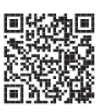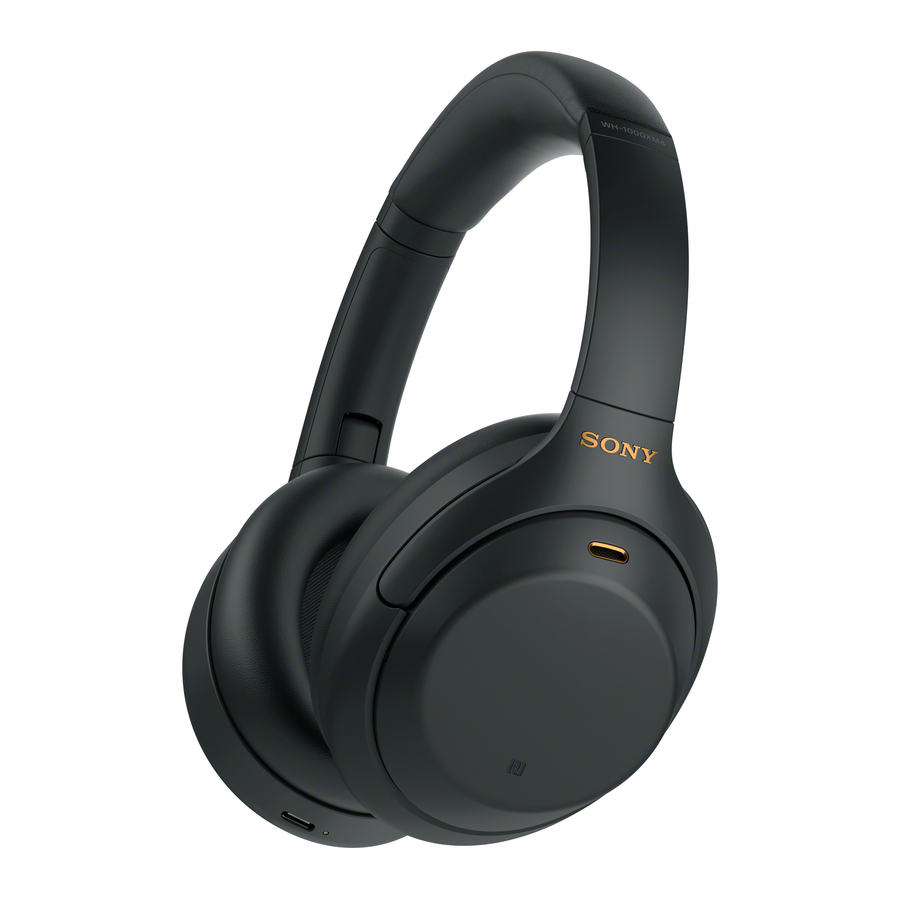
SONY WH-1000XM4 Reference Guide
- User manual ,
- Service manual (52 pages) ,
- How to connect (26 pages)
- 1 Wireless Noise Canceling Stereo Headset
-
2
Precautions
- 2.1 On BLUETOOTH communications
- 2.2 If sound skips frequently during playback
- 2.3 On the use of calling apps for smartphones and computers
- 2.4 On charging the unit
- 2.5 If the unit does not operate properly
- 2.6 On the noise canceling function
- 2.7 Notes on wearing the unit
- 2.8 Other notes
- 2.9 Cleaning the unit
- 3 Specifications
- 4 Communication specification
- 5 System requirements for battery charge using USB
- 6 Compatible iPhone/iPod models
- 7 Trademarks
- 8 Notes on the License
- 9 Disclaimer regarding services offered by third parties
- 10 Videos
- 11 Documents / Resources

Wireless Noise Canceling Stereo Headset
FOR UNITED STATES CUSTOMERS. NOT APPLICABLE IN CANADA, INCLUDING IN THE PROVINCE OF QUEBEC.
Owner's Record
The model and serial numbers are located on the product.
Record them in the space provided below and store them.
Model No.________________________
Serial No._________________________
RECYCLING RECHARGEABLE BATTERIES
Rechargeable batteries are recyclable.
You can help preserve our environment by returning your used rechargeable batteries to the collection and recycling location nearest you.
For more information regarding recycling of rechargeable batteries, visit http://www.sony.com/electronics/eco/environmental-management Caution: Do not handle damaged or leaking rechargeable batteries.
FOR UNITED STATES CUSTOMERS. NOT APPLICABLE IN CANADA, INCLUDING IN THE PROVINCE OF QUEBEC.
You are cautioned that any changes or modifications not expressly approved in this manual could void your authority to operate this equipment.
If you have any questions about this product:
Visit: https://www.sony.com/electronics/support Contact: Sony Customer Information Service Center at 1-800-2227669 Write: Sony Customer Information Service Center 12451 Gateway Blvd., Fort Myers, FL 33913 Supplier's Declaration of Conformity Trade Name: SONY Model: WH-1000XM4
Responsible Party: Sony Electronics Inc.
Address: 16535 Via Esprillo, San Diego, CA 92127 U.S.A.
Telephone Number: 858-942-2230
This device complies with Part 15 of the FCC Rules. Operation is subject to the following two conditions:
(1) this device may not cause harmful interference, and
(2) this device must accept any interference received, including interference that may cause undesired operation.
NOTE:
This equipment has been tested and found to comply with the limits for a Class B digital device, pursuant to Part 15 of the FCC Rules. These limits are designed to provide reasonable protection against harmful interference in a residential installation. This equipment generates, uses, and can radiate radio frequency energy and, if not installed and used in accordance with the instructions, may cause harmful interference to radio communications.
However, there is no guarantee that interference will not occur in a particular installation. If this equipment does cause harmful interference to radio or television reception, which can be determined by turning the equipment off and on, the user is encouraged to try to correct the interference by one or more of the following measures:
– Reorient or relocate the receiving antenna.
– Increase the separation between the equipment and receiver.
– Connect the equipment into an outlet on a circuit different from that to which the receiver is connected.
– Consult the dealer or an experienced radio/TV technician for help.
This equipment must not be co-located or operated in conjunction with any other antenna or transmitter.
This equipment complies with FCC radiation exposure limits set forth for an uncontrolled environment and meets the FCC radio frequency (RF) Exposure Guidelines. This equipment has very low levels of RF energy that is deemed to comply without testing of specific absorption rate (SAR).
For the customer in Canada
This device contains licence-exempt transmitter(s)/receiver(s) that comply with Innovation, Science and Economic Development Canada's licence-exempt RSS(s). Operation is subject to the following two conditions:
(1) This device may not cause interference; and
(2) This device must accept any interference, including interference that may cause undesired operation of the device.
The available scientific evidence does not show that any health problems are associated with using low power wireless devices. There is no proof, however, that these low power wireless devices are absolutely safe. Low power Wireless devices emit low levels of radio frequency energy (RF) in the microwave range while being used. Whereas high levels of RF can produce health effects (by heating tissue), exposure of low-level RF that does not produce heating effects causes no known adverse health effects. Many studies of low-level RF exposures have not found any biological effects. Some studies have suggested that some biological effects might occur, but such findings have not been confirmed by additional research. Wireless Noise Canceling Stereo Headset (WH-1000XM4) has been tested and found to comply with ISED radiation exposure limits set forth for an uncontrolled environment and meets RSS-102 of the ISED radio frequency (RF) Exposure rules.
High volume may affect your hearing.
Do not use the unit while walking, driving or cycling. Doing so may cause traffic accidents.
Do not use at a dangerous place unless the surrounding sound can be heard.
The unit is not waterproof. If water or foreign objects enter the unit, it may result in fire or electric shock. If water or a foreign object enters the unit, stop use immediately and consult your nearest Sony dealer. In particular, be careful in the following cases.
– When using the unit around a sink, etc. Be careful that the unit does not fall into a sink or container filled with water.
– When using the unit in the rain or snow, or in humid locations
– When using the unit while you ar e sweaty
If you touch the unit with wet hands, or put the unit in the pocket of a damp article of clothing, the unit may get wet.
For details on the effect of contact to the human body from the mobile phone or other wireless devices connected to the unit, refer to the instruction manual of the wireless device.
Never insert the USB plug when the main unit or charging cable is wet. If the USB plug is inserted while the main unit or charging cable is wet, a short circuit may occur due to the liquid (tap water, seawater, soft drink, etc.) attached to the main unit or charging cable or due to foreign matter, and cause abnormal heat generation or malfunction.
This product (including accessories) has magnet(s) which may interfere with pacemakers, programmable shunt valves for hydrocephalus treatment, or other medical devices. Do not place this product close to persons who use such medical devices. Consult your doctor before using this product if you use any such medical device.
Note on static electricity
Static electricity accumulated in the body may cause mild tingling in your ears. To reduce the effect, wear clothes made from natural materials, which suppress the generation of static electricity.
IMPORTANT: THE FACTORY DEFAULT SETTING OF THE VOICE GUIDANCE FOR THIS UNIT IS ENGLISH.
The voice guidance can be heard from the unit when:
• When powering on: "Power on"
• When powering off: "Power off"
• When the remaining battery level is low and recharge is recommended: "Low battery, please recharge headset"
• When automatically turning off due to low battery: "Please recharge headset. Power off"
• When checking the remaining battery level by pressing the POWER button while the unit turns on: "Battery fully charged" / "Battery about 90%" / "Battery about 80%" / "Battery about 70%" / "Battery about60%" / "Battery about 50%" / "Battery about 40%" / "Battery about30%" / "Battery about 20%" / "Battery about 10%"
• When entering pairing mode: "Bluetooth pairing"
• When establishing a Bluetooth connection: "Bluetooth connected"
• When disconnecting a Bluetooth connection: "Bluetooth disconnected"
• When turning on the noise canceling function: "Noise canceling"
• When turning on the Ambient Sound Mode: "Ambient sound"
• When turning off the noise canceling function and the Ambient Sound Mode: "Ambient sound control off"
• When starting the NC Optimizer: "Optimizer start"
• When the NC Optimizer is finished: "Optimizer finished"
• When the automatic switching setting of Speak-to-chat is on: "Speak-to-chat activated"
• When the automatic switching setting of Speak-to-chat is off: "Speak-to-chat deactivated"
Precautions
On BLUETOOTH® communications
• Bluetooth wireless technology operates within a range of about 10 m (30 feet). The maximum communication distance may vary depending on the presence of obstacles (people, metal objects, walls, etc.) or the electromagnetic environment.
• Bluetooth communications may not be possible, or noise or audio dropout may occur under the following conditions:
– When there is a person between the unit and the Bluetooth device. This situation may be improved by positioning the Bluetooth device so that it faces the antenna of the unit.
– When there is an obstacle, such as a metal object or a wall, between the unit and the Bluetooth device.
– When a Wi-Fi device or microwave oven is in use, or microwaves are emitted near the unit.
– Compared to use indoors, use outdoors is subjected little to signal reflection from walls, floors, and ceilings, which results in audio dropout occurring more frequently than use indoors.
– The antenna is built into the unit as indicated by the dotted line in the illustration below. The sensitivity of the Bluetooth communications can be improved by removing any obstacles between the connected Bluetooth device and the antenna of this unit.
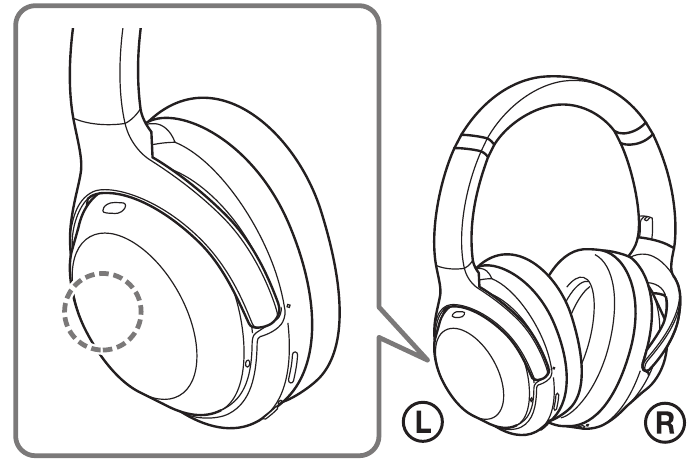
• Bluetooth and Wi-Fi (IEEE802.11b/g/n) devices use the same frequency (2.4 GHz). When using the unit near a Wi-Fi device, electromagnetic interference may occur, resulting in noise, audio dropout, or the inability to connect. If this happens, try performing the following remedies:
– Establish a connection between the unit and the Bluetooth device when they are at least 10 m (30 feet) away from the Wi-Fi device.
– T urn off the Wi-Fi device when using the unit within 10 m (30 feet) of the Wi-Fi device.
– Position the unit and the Bluetooth device as near as possible to each other.
• Microwaves emitting from a Bluetooth device may affect the operation of electronic medical devices. Turn off this unit and other Bluetooth devices in the following locations, as it may cause an accident:
– in hospitals, near priority seating in trains, locations where inflammable gas is present, near automatic doors, or near fire alarms.
• The audio playback on this unit may be delayed from that on the transmitting device, due to the characteristics of Bluetooth wireless technology. As a result, the sound may not be in sync with the image when viewing movies or playing games.
• This product emits radio waves when used in wireless mode. When used in wireless mode on an airplane, follow flight crew directions regarding permissible use of products in wireless mode.
• The unit supports security functions that comply with the Bluetooth standard as a means of ensuring security during communication using Bluetooth wireless technology. However, depending on the configured settings and other factors, this security may not be sufficient. Be careful when communicating using Bluetooth wireless technology.
• Sony shall assume no responsibility for any damages or loss resulting from information leaks that occur when using Bluetooth communications.
• Connection with all Bluetooth devices cannot be guaranteed.
– Blue tooth devices connected with the unit must comply with the Bluetooth standard prescribed by Bluetooth SIG, Inc., and must be certified as compliant.
– E ven when a connected device complies with the Bluetooth standard, there may be cases where the characteristics or specifications of the Bluetooth device make it unable to connect, or result in different control methods, display, or operation.
– When using the unit to perform hands-free talking on the phone, noise may occur depending on the connected device or the communication environment.
• Depending on the device to be connected, it may require some time to start communications.
If sound skips frequently during playback
• The situation may be improved by setting the sound quality mode to "priority on stable connection." For details, refer to the Help Guide.
• The situation may be improved by changing the wireless playback quality settings or fixing the wireless playback mode to SBC on the transmitting device. For details, refer to the operating instructions supplied with the transmitting device.
• When listening to music from a smartphone, the situation may be improved by closing unnecessary apps or restarting the smartphone.
On the use of calling apps for smartphones and computers
• This unit supports normal incoming calls only. Calling apps for smartphones and computers are not supported.
On charging the unit
• This unit can be charged using USB only. A computer with a USB port or a USB AC adaptor is required for charging.
• Be sure to use the supplied USB Type-C cable.
• When charging, the unit cannot be turned on and the Bluetooth and noise canceling functions cannot be used.
• If the unit is not used for a long time, the rechargeable battery may become depleted quickly. The battery will be able to hold a proper charge after it is discharged and recharged several times. When storing the unit for a long time, charge the battery once every six months to prevent over-discharge.
• If the rechargeable battery becomes depleted extremely quickly, it should be replaced with a new one. Please contact your nearest Sony dealer for a battery replacement.
If the unit does not operate properly
• Follow the procedure below to reset the unit.
Press the  and CUSTOM buttons simultaneously while the unit is charging. The unit is reset. When the unit is reset, the pairing information in the unit is not deleted.
and CUSTOM buttons simultaneously while the unit is charging. The unit is reset. When the unit is reset, the pairing information in the unit is not deleted. 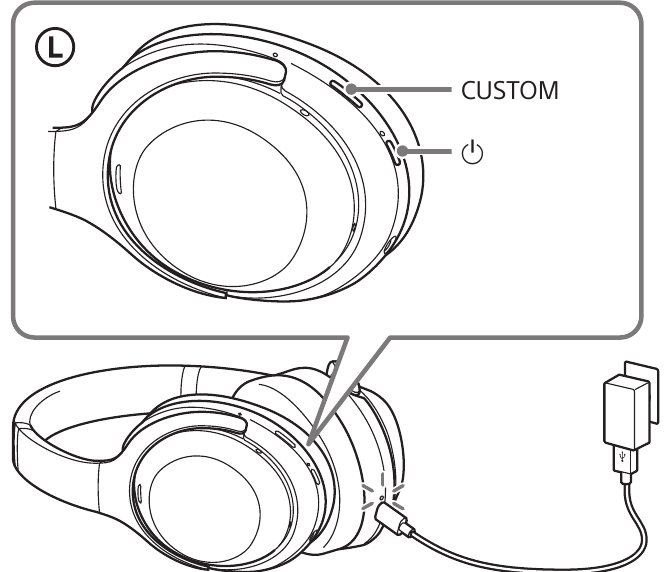
• If the problem persists even after the unit is reset, perform the procedure below to initialize the unit.
Disconnect the USB Type-C cable and turn off the unit. Press and hold the and CUSTOM buttons simultaneously for at least 7 seconds. The indicator (blue) flashes 4 times, the unit is initialized, and the unit is reset to the factory settings. When the unit is initialized, all pairing information is deleted.
• After the unit is initialized, it may not connect to your iPhone or computer. If this happens, delete the pairing information of the unit from the iPhone or computer, and then pair them again.
On the noise canceling function
• The noise canceling function senses external ambient noise (such as the noise inside a vehicle or the sound of air conditioning inside a room) with built-in microphones, and produces an equal-but-opposite sound that cancels out the ambient noise.
– The noise canceling effect may not be pronounced in a very quiet environment, or some noise may be heard.
– The noise canceling function works for noise in the low frequency band primarily. Although noise is reduced, it is not canceled completely.
– When you use the unit in a train or a car, noise may occur depending on street conditions.
– Mobile phones may cause interference and noise. Should this occur, locate the unit further away from the mobile phone.
– Depending on how you wear the unit, the noise canceling effect may vary or a beeping sound (howling) may occur. If this happens, take off the unit and put it back on again.
– Do not cover the microphones of the unit with your hands or other objects. Doing so may prevent the noise canceling function or the Ambient Sound Mode from working properly, or may cause a beeping sound (howling) to occur. If this happens, take your hands or other object off of the microphones of the unit.
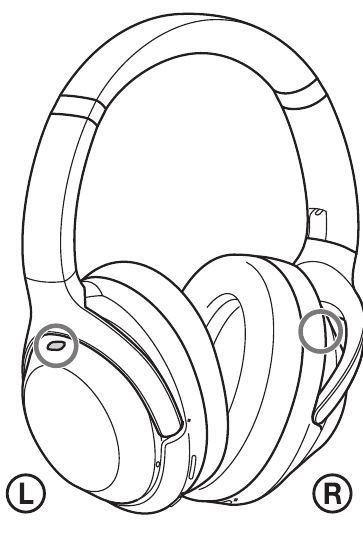
Notes on wearing the unit
• Because the headphones achieve a tight seal over the ears, forcibly pressing them against your ears or quickly pulling them off can result in eardrum damage. When wearing the headphones, the speaker diaphragm may produce a click sound. This is not a malfunction.
Other notes
• Do not subject the unit to excessive shock.
• The touch sensor may not operate properly if you apply stickers or other adhesive items to the touch sensor control panel.
• Be careful not to catch your finger in the unit when folding.
• When you use the unit as wired headphones, use the supplied headphone cable only. Make sure that the headphone cable is firmly inserted.
• The Bluetooth function may not work with a mobile phone, depending on the signal conditions and the surrounding environment.
• Do not apply weight or pressure to the unit for long periods, including when it is stored, as it may cause deformation.
• If you experience discomfort while using the unit, stop using it immediately.
• The earpads may be damaged or deteriorate with long-term use and storage.
Cleaning the unit
• When the outside of the unit is dirty, clean it by wiping with a soft dry cloth. If the unit is particularly dirty, soak a cloth in a dilute solution of neutral detergent, and wring it well before wiping. Do not use solvents such as thinner, benzene, or alcohol, as they may damage the surface.
• If the sensor part inside the left unit housing gets fogged up or there are water droplets on it due to condensation or humidity from sweat, etc., wearing detection may not work properly. When the sensor part is fogged up or there are water droplets on it, leave the sensor part facing up until the moisture disappears.
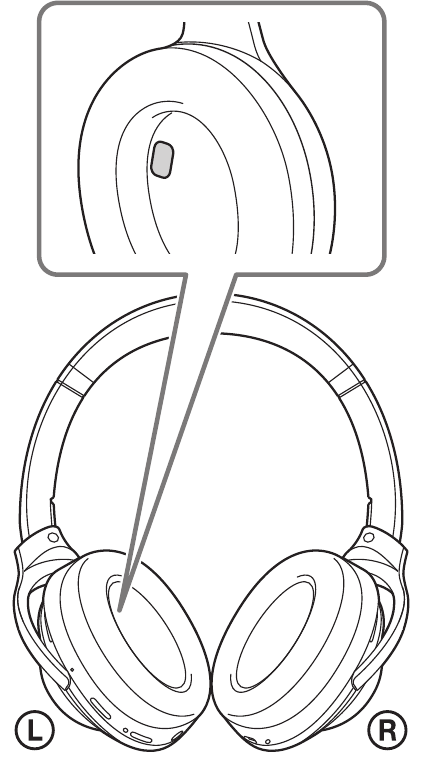
• If you have any questions or problems concerning this unit that are not covered in this manual, please consult your nearest Sony dealer.
Replacement parts: earpads
Please consult your nearest authorized Sony retailer or www.sony.com for information about replacement parts.
Specifications
Headset
Power source:
DC 3.7 V: Built-in lithium-ion rechargeable battery
DC 5 V: When charged using USB
Operating temperature:
0°C to 40°C (32°F to 104°F)
Rated power consumption:
8 W
Usage hours:
When connecting via the Bluetooth device
Music playback time: Max. 30 hours (NC ON), Max. 22 hours
(Ambient Sound Mode), Max. 38 hours (NC OFF)
Communication time: Max. 24 hours (NC ON), Max. 18 hours
(Ambient Sound Mode), Max. 30 hours (NC OFF)
Standby time: Max. 30 hours (NC ON), Max. 22 hours (Ambient Sound Mode), Max. 200 hours (NC OFF)
When connecting via the headphone cable with NC ON: Max. 22 hours
Note: Usage hours may be shorter depending on the Codec and the conditions of use.
Charging time: Approx. 3 hours
(About 5 hours of music playback is possible after 10 minutes charging.)
Note: Charging and usage hours may be different depending on the conditions of use.
Charging temperature:
5°C to 35°C (41°F to 95°F)
Mass:
Approx. 254 g (8.96 oz)
Impedance:
40 Ω (1 kHz) (when connecting via the headphone cable with the unit turned on)
16 Ω (1 kHz) (when connecting via the headphone cable with the unit turned off)
Sensitivity:
105 dB/mW (when connecting via the headphone cable with the unit turned on)
101 dB/mW (when connecting via the headphone cable with the unit turned off)
Frequency response:
4 Hz - 40,000 Hz (JEITA) (when connecting via the headphone cable with the unit turned on)
Included items:
Wireless Noise Canceling Stereo Headset (1)
USB Type-C® cable (USB-A to USB-C®) (approx. 20 cm (7.88 in.)) (1)
Headphone cable (approx. 1.2 m (47.25 in.)) (1)
Carrying case (1)
Plug adaptor for in-flight use (1)1)
1) Depending on the in-flight entertainment services, it may not be supported.
Communication specification
Communication system:
Bluetooth Specification version 5.0
Output:
Bluetooth Specification Power Class 1
Maximum communication range:
Line of sight approx. 10 m (30 ft)1)
Frequency band:
2.4 GHz band (2.4000 GHz - 2.4835 GHz)
Compatible Bluetooth profiles2):
A2DP / AVRCP / HFP / HSP
Supported Codec3):
SBC / AAC / LDACTM
Transmission range (A2DP):
20 Hz - 20,000 Hz (Sampling frequency 44.1 kHz)
20 Hz - 40,000 Hz (Sampling frequency LDAC 96 kHz, 990 kbps)
1) The actual range will vary depending on factors such as obstacles between devices, magnetic fields around a microwave oven, static electricity, reception sensitivity, antenna's performance, operating system, software application, etc.
2) Bluetooth standard profiles indicate the purpose of Bluetooth communications between devices.
3) Codec: Audio signal compression and conversion format
Design and specifications are subject to change without notice.
System requirements for battery charge using USB
USB AC adaptor
A commercially available USB AC adaptor capable of supplying an output current of 1.5 A or more
Compatible iPhone/iPod models
iPhone XS Max, iPhone XS, iPhone XR, iPhone X, iPhone 8 Plus, iPhone 8, iPhone 7 Plus, iPhone 7, iPhone SE, iPhone 6s Plus, iPhone 6s, iPhone 6 Plus, iPhone 6, iPhone 5s, iPod touch (6th generation) (As of March 2020)
Trademarks
• Apple, iPhone, iPod and iPod touch are trademarks of Apple Inc., registered in the U.S. and other countries.
• Use of the Made for Apple badge means that an accessory has been designed to connect specifically to the Apple product(s) identified in the badge, and has been certified by the developer to meet Apple performance standards. Apple is not responsible for the operation of this device or its compliance with safety and regulatory standards.
• Android is a trademark of Google LLC.
• The Bluetooth® word mark and logos are registered trademarks owned by the Bluetooth SIG, Inc. and any use of such marks by Sony Corporation is under license.
• The N-Mark is a trademark or registered trademark of NFC Forum, Inc. in the United States and in other countries.
• The LDAC name and logo are trademarks of Sony Corporation.
• USB Type-C® and USB-C® are registered trademarks of USB Implementers Forum.
• Other trademarks and trade names are those of their respective owners.

Notes on the License
This product contains software that Sony uses under a licensing agreement with the owner of its copyright. We are obligated to announce the contents of the agreement to customers under requirement by the owner of copyright for the software.
Please access the following URL and read the contents of the license. https://rd1.sony.net/help/mdr/sl/20/
Disclaimer regarding services offered by third parties
Services offered by third parties may be changed, suspended, or terminated without prior notice. Sony does not bear any responsibility in these sorts of situations.

VideosSony WH-1000XM4 Full Review & Set up video
Documents / Resources
References
![www.sony.com]() Sustainable Development | Go Green Environmental Policy | Sony US
Sustainable Development | Go Green Environmental Policy | Sony UShttps://www.sony.com/electronics/support
Sony Group Portal - Home
Help Guide | Top
Download manual
Here you can download full pdf version of manual, it may contain additional safety instructions, warranty information, FCC rules, etc.
